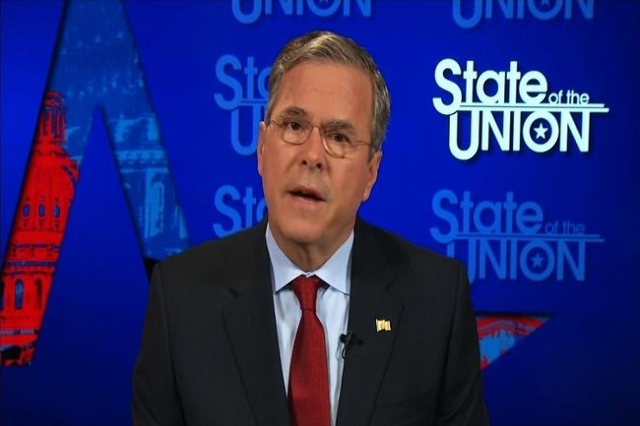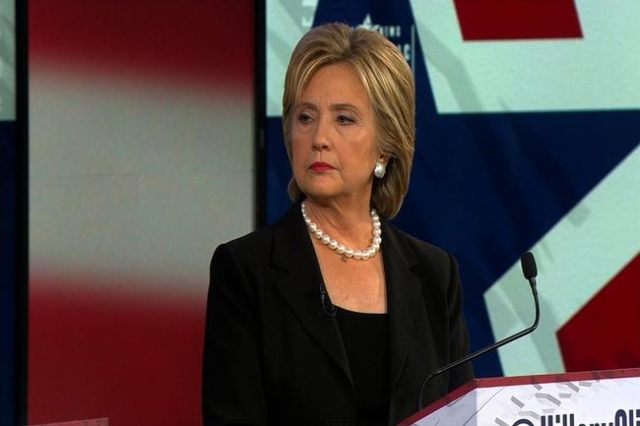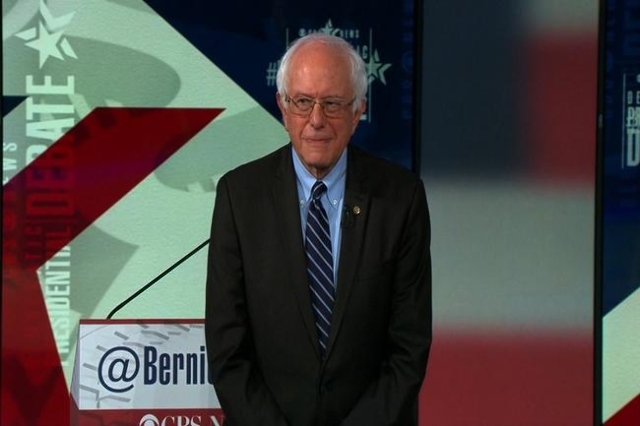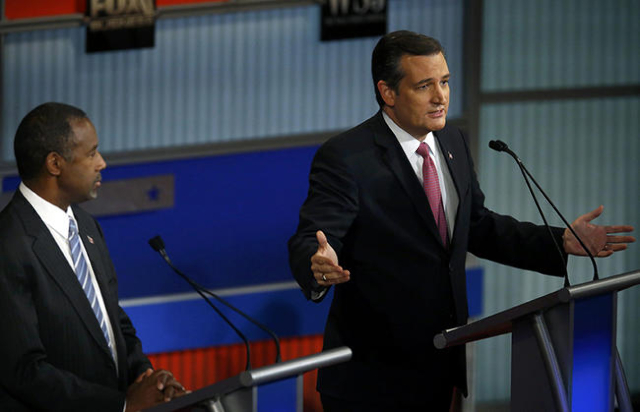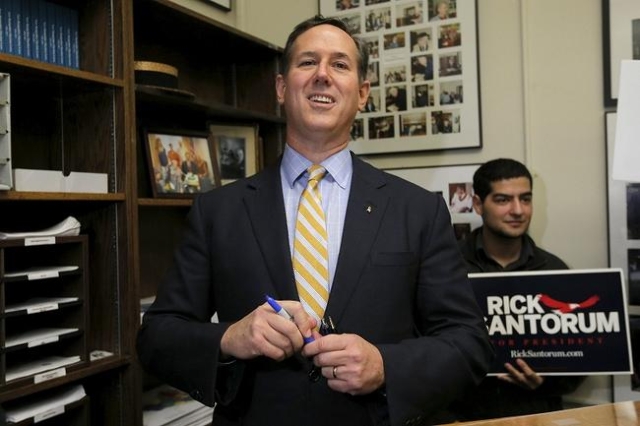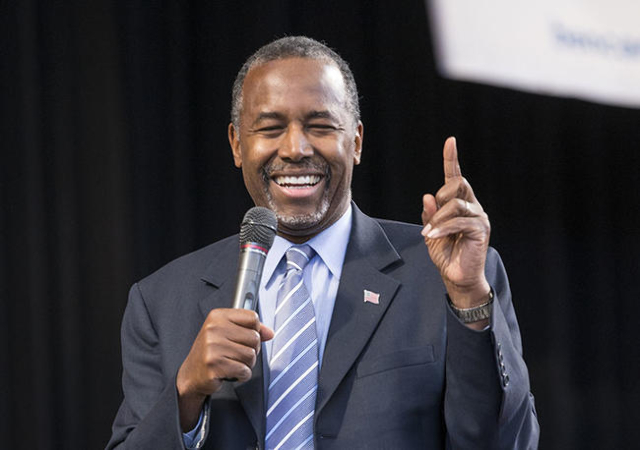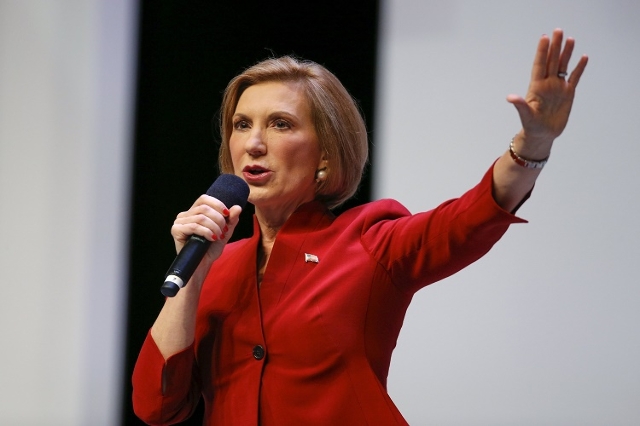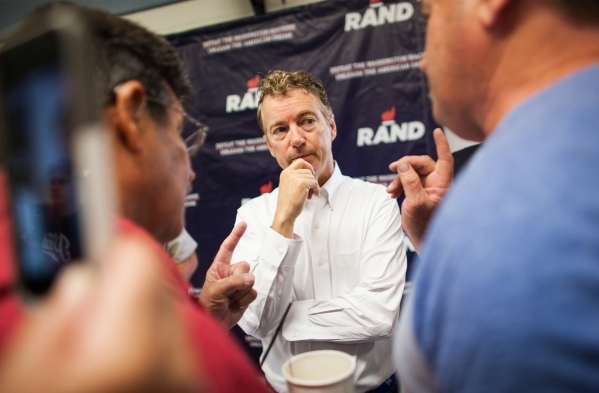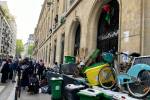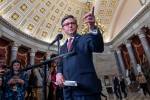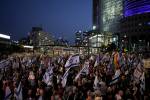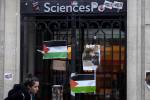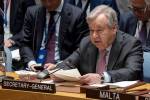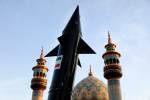Paris attacks become focus of 2016 presidential race
Foreign policy is the new focus on the 2016 campaign trail in the wake of the deadly terrorist attacks in Paris, marking a fresh chapter in the race for the White House that has so far focused on issues such as immigration, the economy and bringing change to Washington.
Republican presidential candidates raised red flags about U.S. border security and the admission of Syrian refugees Sunday in the wake of the Paris attacks. Democrats, meanwhile, pointed to new challenges -- with Hillary Clinton calling ISIS an "unusually effective threat" and Bernie Sanders saying climate change remains crucial to national security.
In the wake of the attacks on Paris, here's what the Republican presidential candidates had to say:
Donald Trump on Monday suggested he would "strongly consider" shutting down mosques in the U.S. as part of the response to the terror attacks in Paris.
"Well, I would hate to do it but it's something you're going to have to strongly consider," Trump said during an interview on MSNBC. "Some of the absolute hatred is coming from these areas ...The hatred is incredible. It's embedded. The hatred is beyond belief. The hatred is greater than anybody understands."
Trump's comments come a day after France's interior minister said he would pursue the "dissolution of mosques where hate is preached."
Trump also took a shot at New York City Mayor Bill de Blasio for his decision last year to halt a covert NYPD program used for surveillance on Muslim communities.
"You're going to have to watch and study the mosques," Trump said, "because a lot of talk is going on at the mosques ... Under the old regime we had tremendous surveillance going around and in the mosques in New York City."
Sen. Lindsey Graham, R-South Carolina, issued a dire warning, saying that "there's another 9/11 coming and it's coming from Syria."
"I believe the United States and the world needs to go on offense and stop the reason people have to leave Syria," Graham said on CNN's "State of the Union." "The good people are leaving because they're being raped and murdered and some terrorists are trying to get in their ranks. The best thing the world could do for Syrian people is to create a safe haven within Syria, a no-fly zone."
Former Florida Gov. Jeb Bush called for a "thorough screening" of those refugees in an appearance on CNN's "State of the Union."
"I think we need to be obviously very, very cautious," Bush said.
Florida Sen. Marco Rubio said the United States shouldn't take any of those refugees at all on ABC's "This Week."
"We won't be able to take more refugees," he said. "It's not that we don't want to, it's that we can't. Because there's no way to background check someone that's coming from Syria. Who do you call and do a background check on them?"
Former Pennsylvania Sen. Rick Santorum agreed, saying that "under no circumstances" should the United States take Syrian refugees.
"By taking in persecuted Christians, Jews, and moderate Muslims, we are complicit in helping ISIS accomplish their goal of establishing an Islamic caliphate," Santorum said in a statement. "Without Christians, Jews, or moderate Muslims in the region, radical Islam will be allowed to run rampant."
Ben Carson, on "Fox News Sunday," said the West should "wage a counter-war against them utilizing social media, and all the same mechanisms that they use." He also opposed allowing Syrian refugees into the United States.
"Bringing people into this country from that area of the world I think is a huge mistake," he said. "Because why wouldn't they infiltrate them with people who are ideologically opposed to us? It would be foolish for them not to do that. So, we need to be very compassionate to understand that these people have been displaced and we should use our expertise and resources to help get them resettle over there, and to support them over there, but to bring them here under these circumstances is a suspension of intellect."
At the Sunshine Summit in Florida on Saturday, Carly Fiorina accused Obama of accepting refugees "unilaterally" and not pledging to verify that they have no ties to terrorism. She also slammed Obama over his comments right before the attack that ISIS had been "contained."
"I am angry. I am angry that just yesterday morning, our president, against all evidence, declared ISIS contained and took a victory lap," the former Hewlett-Packard CEO said. "ISIS is not a 'JV team,' Mr. President, they are not contained, they are at our shores and they measure their victory in body count."
Kentucky Sen. Rand Paul told the gathering in Florida he "wouldn't invite the refugees in the first place."
New Jersey Gov. Chris Christie said at the summit Saturday Obama's "inexperience has put America at risk again."
"He sees the world as he likes to see it: as a fantasy. I see the world as it really is, and it's time for a president who sees the world as it really is, not how he wishes it would be," Christie said.
Former New York Gov. George Pataki said in a statement that "we must put an immediate halt to granting asylum to Syrian refugees."
Ohio Gov. John Kasich said the U.S. should urge NATO to invoke Article 5, a provision that says an attack on one NATO ally -- such as France -- is an attack against all of NATO and its member states.
"We as Americans must assert leadership and we need to stand shoulder to shoulder with France and the French people," Kasich said. "This is a moment to bring us together."
Louisiana Gov. Bobby Jindal said it's time for the United States "to close our borders and keep our people safe from these radical, evil terrorists."
Texas Sen. Ted Cruz said the attack represented an "escalation" in the fight between western civilization and jihadists.
"We must now face the facts," Cruz said in a statement. "Between the downing of the Russian jet over Egypt and this massive coordinated attack on Paris, we are seeing an unmistakable escalation of ISIS' ambitions."
Former Arkansas Gov. Mike Huckabee said the United States doesn't "just have open borders like they do in Europe."
Here's what the Democratic presidential candidates had to say:
The Democratic debate Saturday night began with the candidates pausing on stage, taking a moment of silence to remember the victims of the terrorist attacks that ripped Paris apart just a day earlier.
All three candidates refused to say the fight was with radical Islam, instead focusing on using the word "jihadist" to describe the threats spotlighted in the Paris attacks.
Hillary Clinton said while "our prayers are with the people of France tonight...that is not enough" and called for better coordinated efforts to root out ISIS, the radical group that claimed responsibility.
She said Americans should see the terrorist attack as a reminder that the election "is not only about electing a president, it's also about choosing our next commander in chief."
At an event with Central Iowa Democrats, Clinton talked ISIS, calling the terrorist group an "unusually effective threat."
"I say that because this is sort of the first internet fueled terrorist group," the former secretary of state said. "ISIS is very agile and quite adept at using the Internet to propagandize, to recruit even train insight. We have to be equally so to stand up for our values, to stand up for who we are as a people. Attacking Paris, the city of light, reminds us that there is no middle ground in going after these terrorists."
Clinton suggested "pulling countries off the sidelines so that they work with us and contribute to this ongoing struggle against radical jihadism."
Vermont Sen. Bernie Sanders, made brief note of the terrorist attacks at the top of his opening statement, but quickly pivoted to the core message of the campaign: "a rigged economy" that benefits billionaires.
Still, Sanders made a bold claim in his reference to Paris: "Together, leading the world, this country will rid our planet of this barbarist (sic) organization called ISIS."
On CBS' "Face the Nation," Sanders said climate change is a major national security threat -- including in the rise of ISIS.
"When you have drought, when people can't grow their crops, they're going to migrate into cities," Sanders said.
"And when people migrate into cities and they don't have jobs, there's going to be a lot more instability, a lot more unemployment, and people will be subject to the types of propaganda that al-Qaeda and ISIS are using right now," he said. "So, where you have discontent, where you have instability, that's where problems lie. And certainly, without a doubt, climate change will lead to that."
Later Sunday, during a speech at Simpson College in Iowa, Sanders called for the United States to work with Russia, Saudi Arabia and Iran in combating ISIS.
"We have different points of view ... but Russia has got to join us. We are concerned about Iran, but Iran has to join us. We have concerns about Saudi Arabia, but Saudi Arabia has to join us," he said.
Sanders added: "If all over the world these attacks are taking places, the world has got to come together."
Former Maryland Gov. Martin O'Malley, after saying his heart goes out "to the people of France in this moment of loss," quickly called for "fresh thinking" and "new approaches" -- a definitive nod to his youth and the generational contrast the 52-year-old offers to Clinton's 68 years and Sanders' 74.




